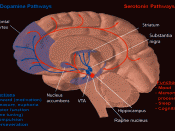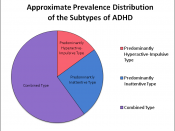Today you see actors and actresses on television with these perfect figures and buff bodies. It makes one stop and think do they have an eating disorder or are they abusing substances. There are many different types of people in this world. There are individuals that have eating disorders, who abuse substances, personality disorders, cannot control their impulses, and foremost sex/gender disorders. These types of behaviors all have biological, emotional, cognitive and behavioral factors.
Today there are many adolescent girls that are anorexic or bulimic. Not many people see this as a disorder. From the cognitive-behavioral perspective, anorexia and bulimia result from a combination of dysfunctional thoughts and experiences that have reinforced eating disordered behaviors. Cognitive-behavioral explanations of eating disorders focus on faulty and distorted thoughts about food and weight, and experiences that have reinforced eating disordered behaviors. Cognitive-behavioral interventions are particularly helpful in educating clients about the psychological effects of eating disorders and helping clients to identify the thoughts and feelings that support self-starvation or the cycle of bingeing and purging.
In general, cognitive-behavioral interventions seem to be more effective for bulimia nervosa than for anorexia nervosa. Salvador Minuchin believed that eating disorders occur in families that are overly enmeshed. Since empirical research has not supported the assertion that a specifickind of family dynamic causes eating disorders, recent family systems approaches emphasize family processes that perpetuate eating disorders once they have begun. (Hansell & Damour, 2005) Psychodynamic explanations of anorexia and bulimia have focused on anorexia as a complex reaction to perfection-oriented families, anorexia as a retreat from adult sexuality, and eating disorders as reactions to traumatic events such as sexual abuse or assault. The sociocultural explanation of eating disorders focuses on the unrealistic images of female beauty presented by the media and their negative effects on women. Eating...


